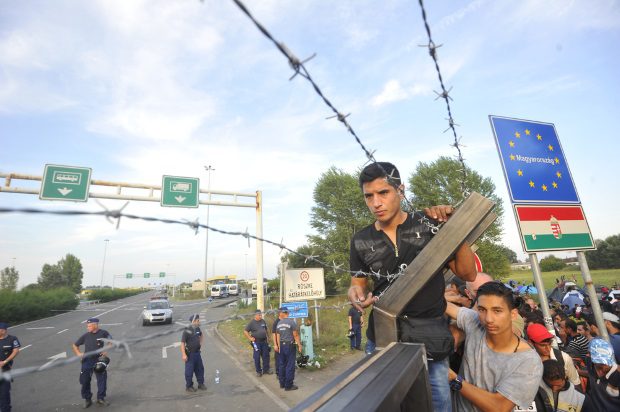Why Eastern Europe Rejects Refugee Quotas

“We were under the supervision of Moscow once,” recently remarked a prominent member of the Czech parliament. “Now a lot of people have the impression…that the same is happening in Brussels.”
The comment was just one example of a dramatic split in Europe, as the continent becomes increasingly divided over how to deal with the continuing migrant crisis. The largest influx of refugees since the Balkan wars of the 1990s, it has led the European Commission to considering allocating quotas of asylum seekers to each EU state, in order to redistribute 160,000 people who have arrived in Greece, Hungary, and Italy.
Support for accommodating migrants is concentrated in the continent’s western nations, with highly diverse societies and a recent history of support for new arrivals from former colonies. But in the east, former communist countries object to again having policies imposed upon them by others.
“We’re convinced that as countries we should keep control over the number of those we are able to accept and then offer them support,” Czech Foreign Minister Lubomir Zaoralek told reporters at a joint press conference of Slovakia, the Czech Republic, Hungary, and Poland.
The countries known as the Visegrad Four feel that distribution of migrants should take place on a voluntary basis. They have also demanded better protection of the borders of the Schengen Area (the zone inside the European Union where travelers move across borders without any passport controls), more defenses against smugglers, and a streamlined process for returning refugees to their country of origin.
The problem is not going away anytime soon. Almost 340,000 migrants and refugees have been spotted at the borders of the European Union since January, according to border agency Frontex, travelling through Hungary and Austria into Germany. With a location adjacent to the Balkan peninsula—itself a gateway to Turkey—and passport-free travel to the rest of Europe, Hungary is particularly attractive to tens of thousands migrants from the Middle East and beyond.
Despite the complaints from Hungary and the rest of the Visegrad Four, the reality is that migrants from poor or conflict-ridden countries in the Middle East use the eastern European nations mostly as transit countries on their way to wealthier states. From the perspective of the eastern countries, this is as it should be: in their eyes, they bear no responsibility for the situation that has led to the migrant crisis in the first place.
Slovak Prime Minister Robert Fico claimed that his country had “absolutely nothing” to do with the destabilized condition in parts of the Middle East. “Have we bombed Libya? Have we liquidated the regime in Iraq? Did we destabilise the situation in Syria? Do we have any relation to these territories? We bear no responsibility for the current situation of these countries. We cannot thus accept somebody making us to take care of people.”
Czech President Milosh Zeman has also blamed the Western invasion in the Middle East for the current refugee crisis in Europe. He said the rise of terrorism in the region had an influence on the growing number of immigrants moving to Europe: “The current wave of migration [to Europe] is rooted in the crazy [U.S.] idea to launch an intervention in Iraq, which allegedly had weapons of mass destruction, but nothing was found.”
Zeman is right to worry about the mess left behind by Western powers in the Middle East. The growing influx of refugees, many of them fleeing the war in Syria, will not be stopped until the fighting there has ended. And yet it is not clear when and how that conflict will end.
German Chancellor Angela Merkel has acknowledged that it is important to fight the “root causes” of the problem, while British Prime Minister David Cameron has implied that the best solution to the crisis will require more Western intervention: “We have taken a number of genuine asylum seekers from Syrian refugee camps … but we think the most important thing is to try to bring peace and stability to that part of the world. I don’t think there is an answer that can be achieved simply by taking more and more refugees.”
Indeed, Europe’s refugee crisis has already been dubbed the worst since the Second World War, with a record number of 107,500 asylum seekers crossing the EU’s borders in July. But it is unclear how Western efforts to stimulate socio-political progress in the Middle East and North Africa—projects which have mostly failed in the past—will be successful in the future.
With no sign that the civil war in Syria is slowing, as well as ongoing conflicts in Afghanistan and Iraq, there is only a growing flow of refugees, and no end in sight.
Adriel Kasonta is a Chairman of the International Affairs Committee at the Bow Group think tank. He is the editor and leading author of the Bow Group’s research paper titled “The Sanctions on Russia.”
Comments